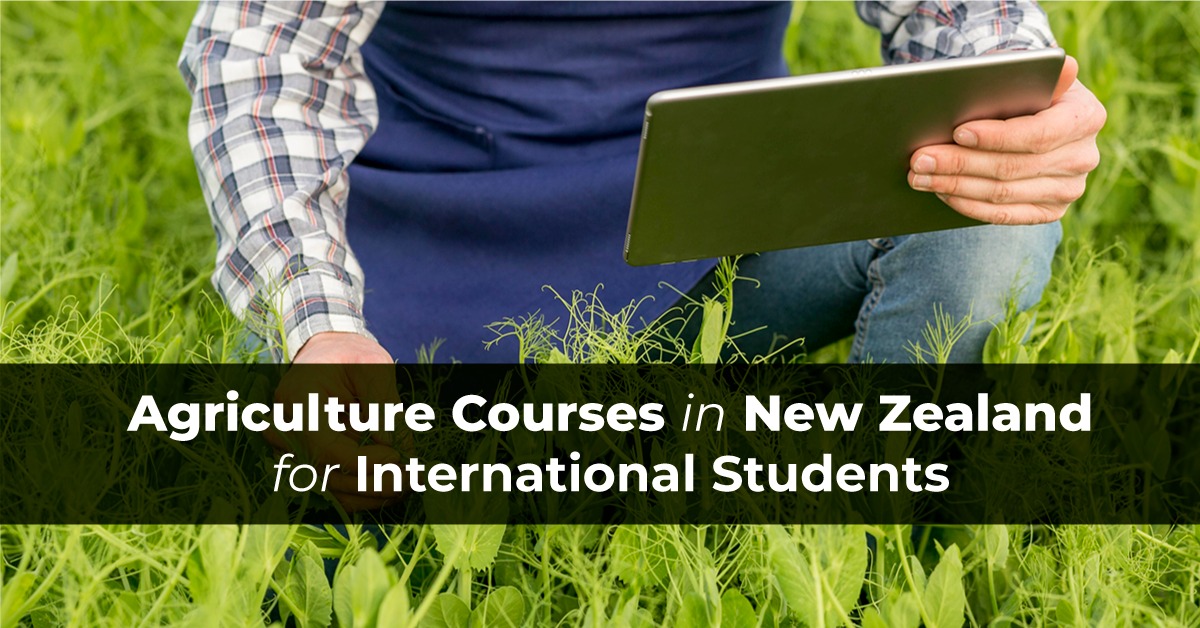
New Zealand is a land of lush greenery, vast pastures, and a thriving agricultural industry. For many international students, particularly from countries like Bangladesh, pursuing Agriculture Courses in New Zealand offers a pathway to a successful career in a sector that is both rewarding and essential to global sustainability. The agriculture industry in New Zealand is one of the cornerstones of its economy, contributing significantly to the country's GDP and export earnings. As the world grapples with climate change and food security issues, agricultural education has become more crucial than ever. Agriculture Courses in New Zealand for International Students not only provide cutting-edge knowledge but also equip students with hands-on experience in sustainable farming practices, advanced technology, and innovative agricultural techniques.
Why Study Agriculture in New Zealand?
New Zealand is a global leader in agriculture, with a reputation for producing high-quality dairy products, meat, and horticultural produce. The country's focus on sustainable farming practices and technological innovation makes it an ideal destination for students interested in agriculture. Here are some compelling reasons why international students, particularly from Bangladesh, should consider study in New Zealand:
Real-Life Example: Jamal's Journey from Dhaka to New Zealand
Jamal, a student from Dhaka, always had a passion for farming. After completing his HSC, he decided to pursue a diploma in agriculture at Lincoln University in New Zealand. Initially, Jamal faced challenges adjusting to a new culture and managing his finances. However, with determination and support from his peers and professors, he excelled in his studies. Today, Jamal works as an agricultural consultant, helping local farmers in New Zealand adopt sustainable practices. His journey is a testament to the opportunities that Agriculture Courses in New Zealand for International Students can provide.
1. Diploma in Agriculture
2. Bachelor's Degree in Agriculture
3. Master's Degree in Agriculture
4. Short-Term Certification Courses
Studying abroad can be expensive, especially for students from middle-income families in Bangladesh. Tuition fees, living expenses, and travel costs add up quickly.
Solution:
2. Cultural Differences
Adapting to a new culture can be challenging. The language barrier, different teaching styles, and new social norms can be overwhelming.
Solution:
3. Homesickness
Many Bangladeshi students feel homesick after moving to New Zealand.
Solution:
Real-Life Example: Maria's Success Story
Maria, a Bangladeshi student, completed her Bachelor's degree in Horticulture at Massey University. She now runs a successful organic farm in New Zealand and regularly conducts workshops for aspiring farmers. Her story highlights the diverse opportunities available to graduates of agriculture courses.
Most universities require a high school diploma, proof of English proficiency (like IELTS), and relevant academic transcripts.
2. Are there scholarships available for Bangladeshi students?
Yes, many universities offer scholarships for international students based on academic performance.
3. Can I work while studying in New Zealand?
Yes, international students can work up to 20 hours per week during the academic year.
4. What is the average tuition fee for agriculture courses?
Tuition fees vary but typically range from NZD 20,000 to NZD 35,000 per year.
5. Is it possible to get permanent residency after completing an agriculture course?
Yes, completing an agriculture course can improve your chances of gaining permanent residency.
6. What are the job prospects after graduation?
Graduates can work as farm managers, consultants, researchers, and more.
7. Is New Zealand a safe country for international students?
Yes, New Zealand is known for being a safe and welcoming country.
8. How can I improve my chances of getting admitted?
Focus on your academic performance and prepare a strong personal statement.
9. What is the cost of living in New Zealand?
The cost of living varies by city but typically ranges from NZD 15,000 to NZD 20,000 per year.
10. Are agriculture courses in New Zealand worth it?
Absolutely. They offer practical skills, career opportunities, and a pathway to residency.